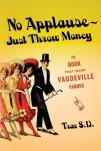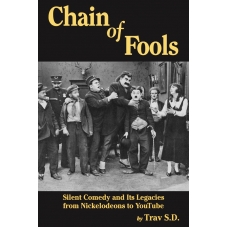Today is the birthday of John Belushi (1949-1982), my second favorite Albanian.
I originally planned to put this post in the “Stars of Slapstick” series, but, though Belushi was a great slapstick comedian, he was more than that. I had a bit of a revelation a few weeks back while working on this related post, about what a sea change there was in popular culture when he died. I can’t really articulate what he signified to me and other young people when he was alive (I was 16 or 17 when he died), but I shall make the attempt.

Belushi was funny, but he was also sort of like a rock star. For us he seemed to symbolize something that we wanted to emulate. Because of the roles he played on Saturday Night Live and in his movies, and the offscreen exploits we heard about through the media, he seemed like a sort of demi-God of destruction, a living personification of Dionysus (or at least, Bacchus and DEFINITELY a young version of Silenus). He achieved this much more effectively, by the way, then say, Jim Morrison, who set out to do the same thing, but wound up being a figure one laughs at, not with. Belushi embodied the fearless wrecklessness of youth, but not in a foolish way, not for its own sake, but as an expression of something within. It’s not about the pursuit of intoxication; it’s about the wisdom of yielding to your craziness. And you either understood that or you didn’t.
Steve Allen, in his book Funny People put down Belushi while praising to the skies hacks like Steve Lawrence and Tim Conway. He was particularly appalled by the scene in Animal House on the stairway, when Bluto encounters an earnest young folk singer puling “I Gave My Love a Cherry” and is obliged to smash his guitar. The fact that he actually does what we would really like to do ourselves makes him our hero. Unless, of course, it doesn’t. But Belushi was one to us. He seemed the comedy equivalent of the Sex Pistols, or the young Who of “My Generation” — literally smashing the box that torments you. A comedy catharsis.
And as I said in the earlier post, Belushi’s death had a chilling effect culturally. He had represented the leading edge, and others followed his example. The comedy of his time expressed a spirit of rebellion. Just as Animal House brings anarchy to a college campus, Meatballs (1979) does the same to a summer camp, Caddyshack (1980) does the same to a country club, and Stripes (1981) does it to the army. And Belushi’s partner in crime Dan Aykroyd seemed to be possessed by the same spirit by just being around him. In Neighbors (1981), the two men even flipped parts, Belushi playing the victim, Akroyd playing the wild man, channeling his inner Belushi.
And when Belushi died…you just see it. The climate was different. It seems like everyone lost courage, lost heart, or just lost the taste for danger and risk. And it’s too bad, because he was very badly needed right then. The culture of the entire country (and I include pop culture) was about to tack in the direction of Ronald Reagan.
Now here’s a cool artifact: Belushi’s audition tape for SNL from 1975. Damn, what charisma.
Don’t miss my new book Chain of Fools: Silent Comedy and Its Legacies from Nickelodeons to Youtube, just released by Bear Manor Media, also available from amazon.com etc etc etc
To find out more about the variety arts past and present (including tv variety), consult No Applause, Just Throw Money: The Book That Made Vaudeville Famous, available at Amazon, Barnes and Noble, and wherever nutty books are sold.




Yep, that was the early 1980’s, all right. Belushi died. SCTV was cancelled. Peter Cook was cast in unmemorable sitcoms and Dudley Moore in so-so Hollywood movies. Unfortunately, I didn’t discover “The Black Adder” until it got a PBS run a few years after its original broadcast.
LikeLike